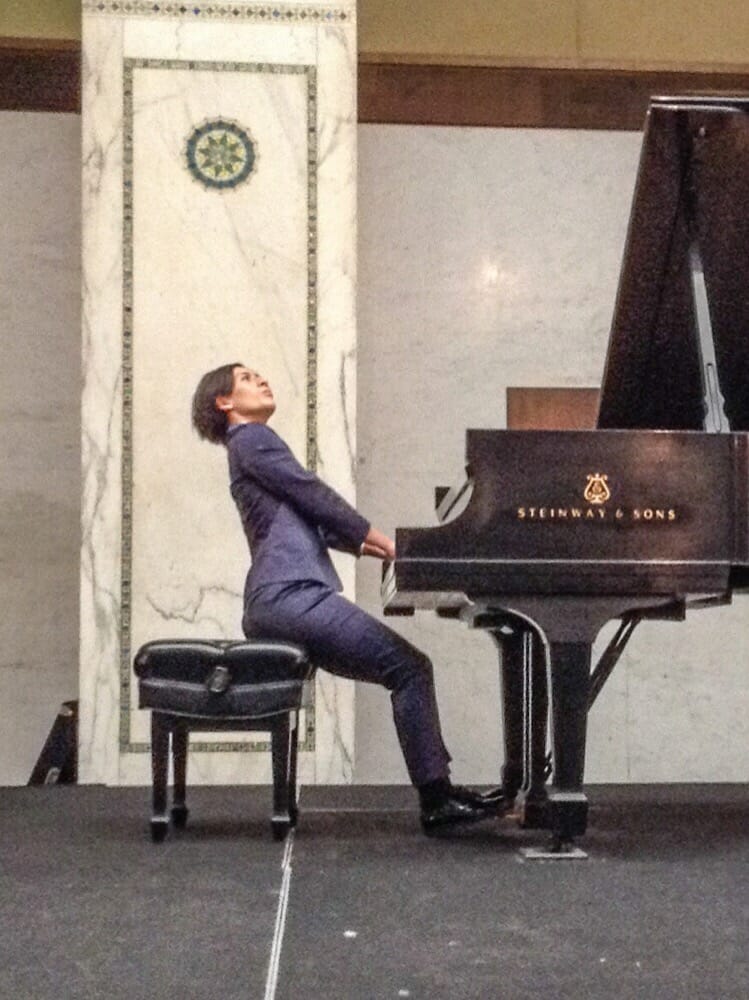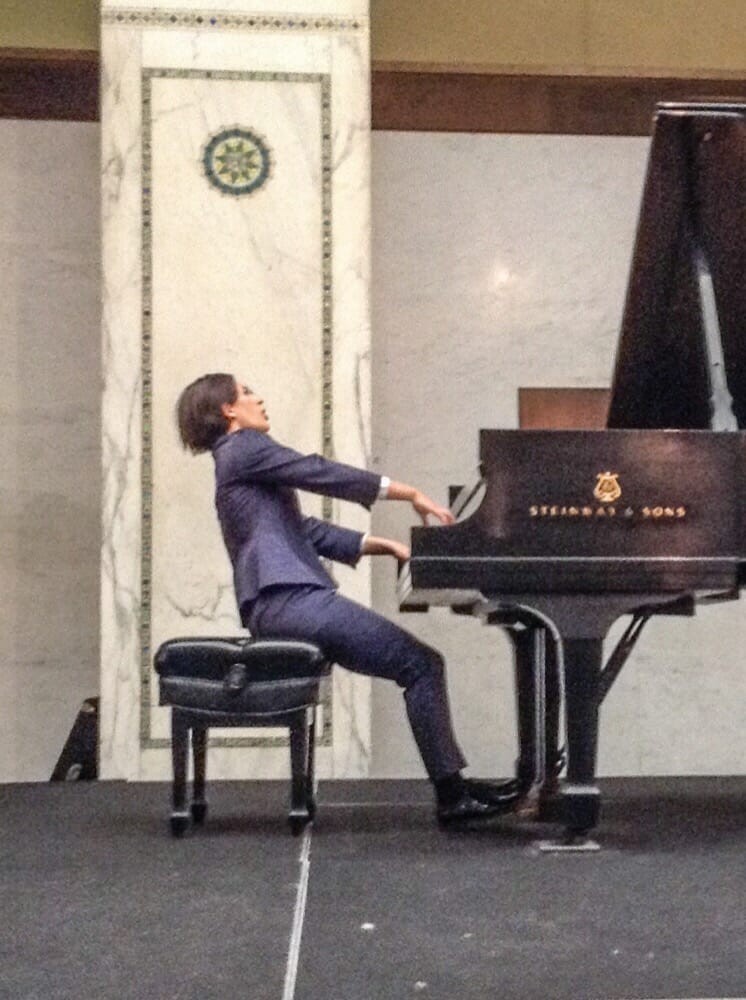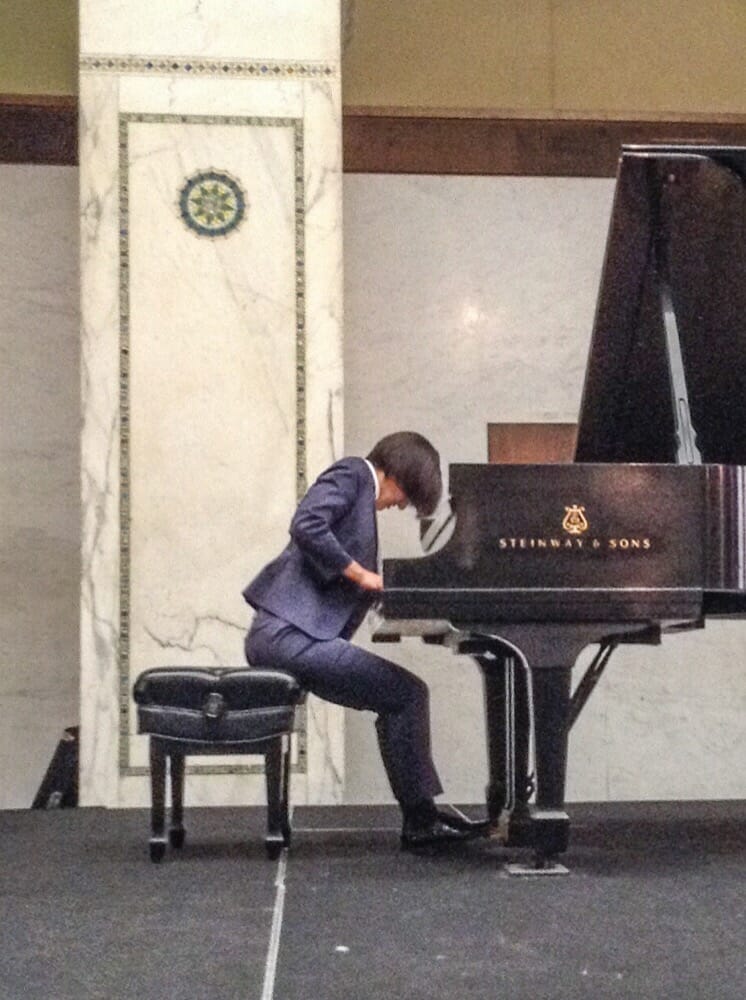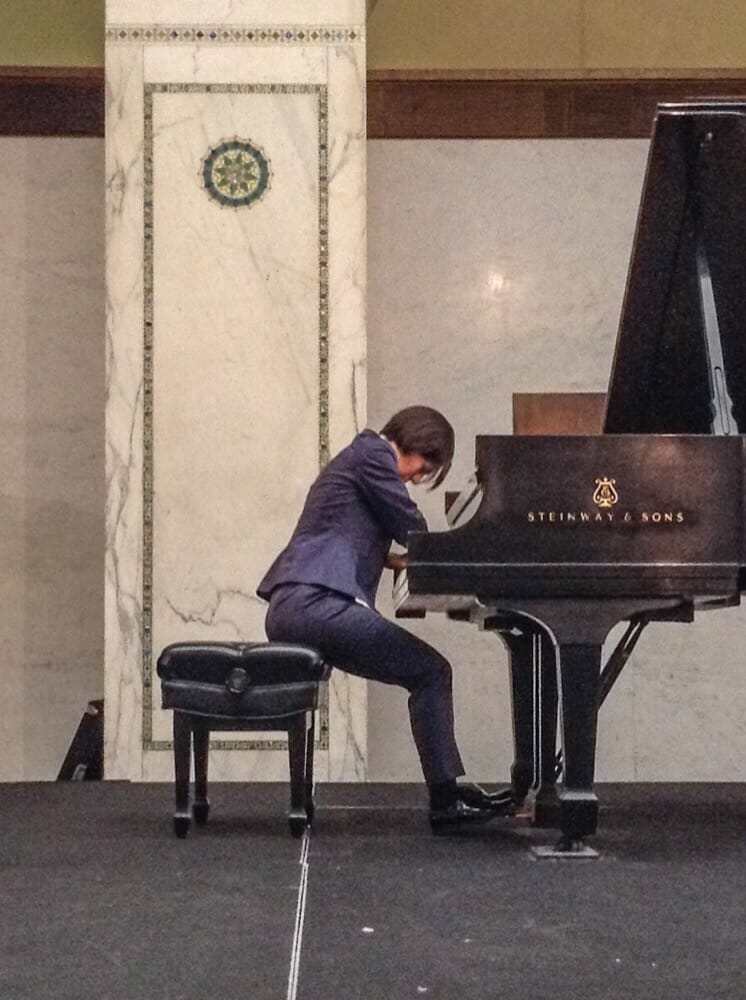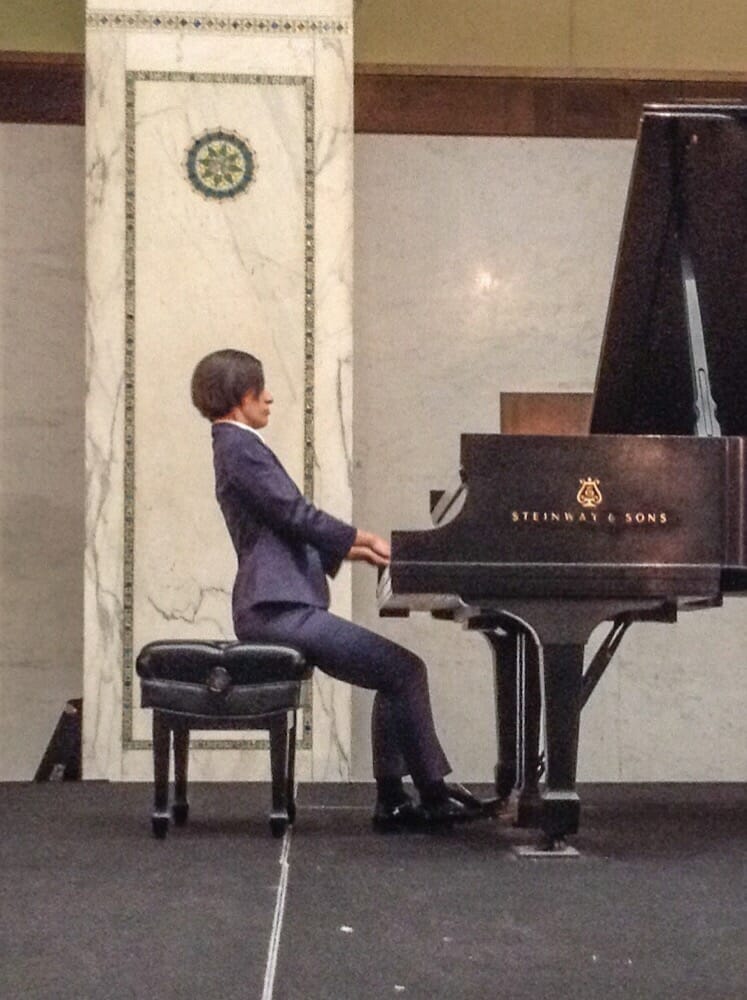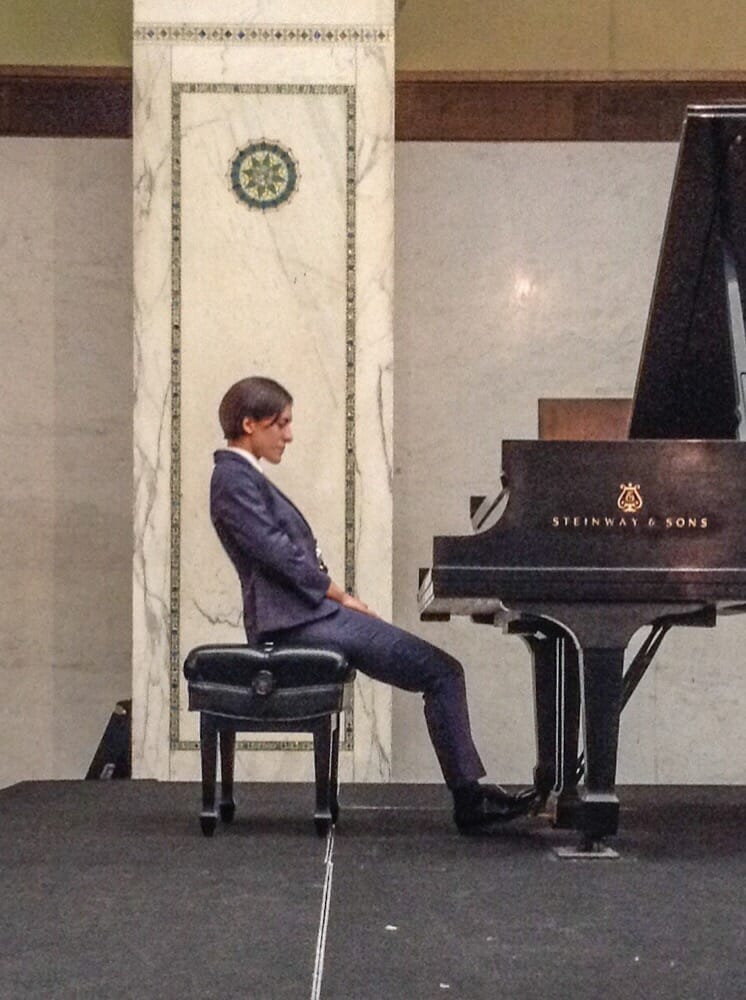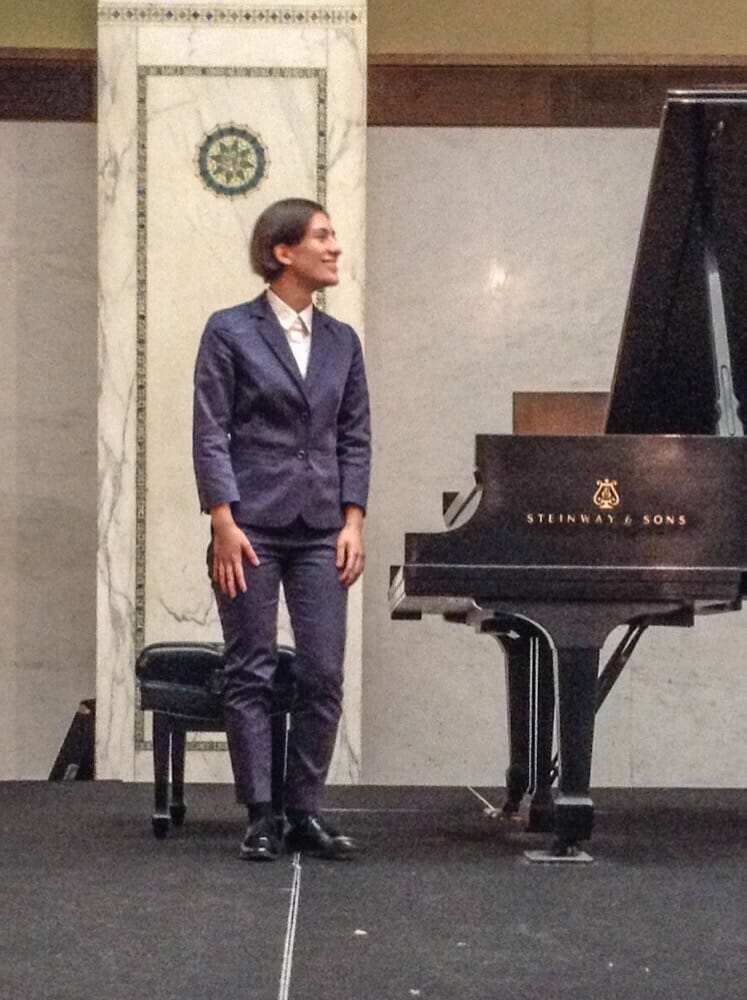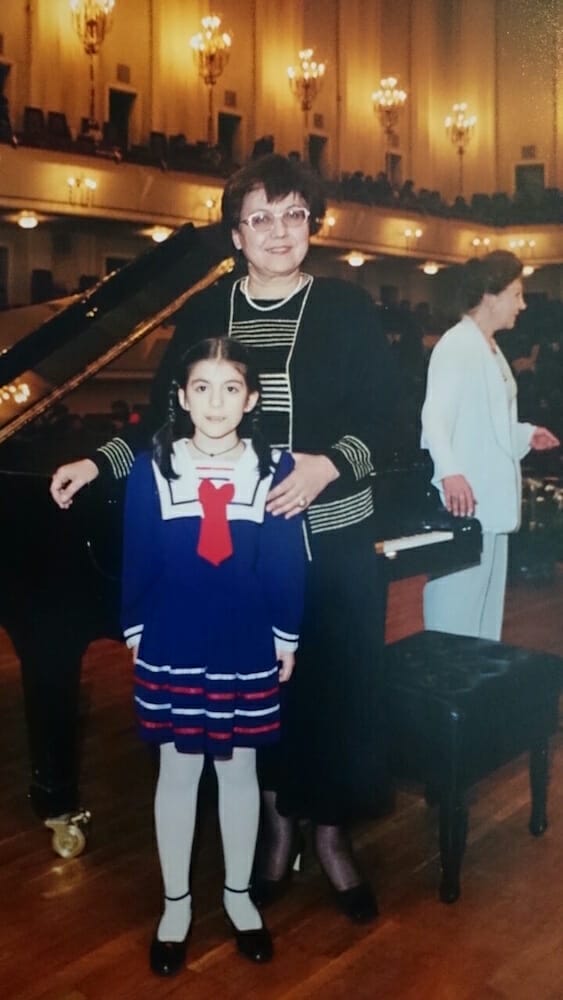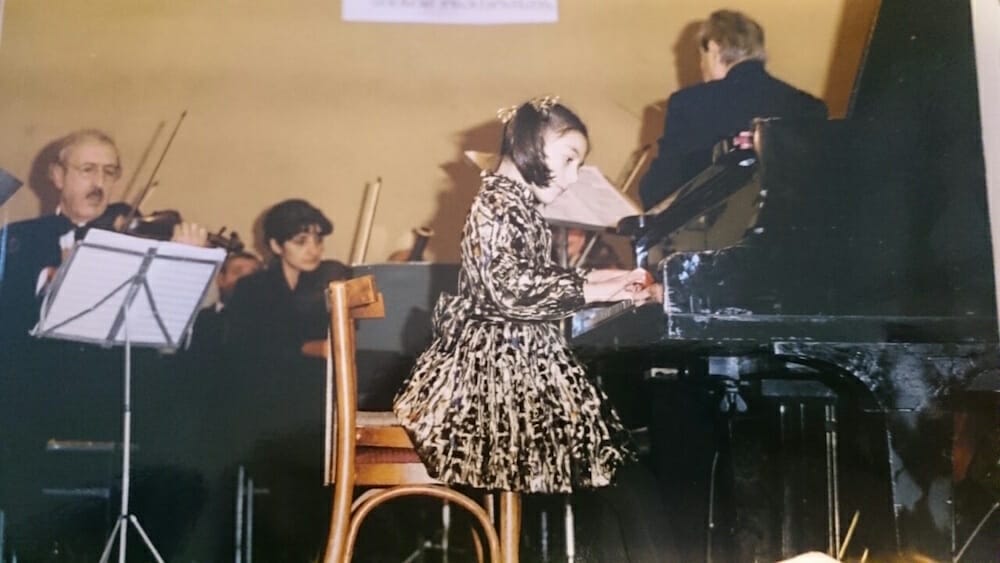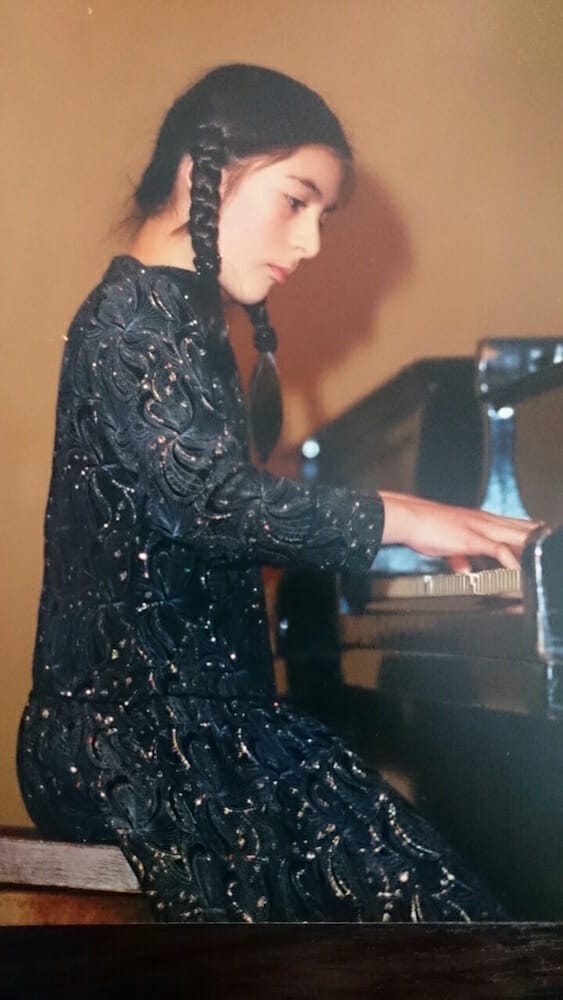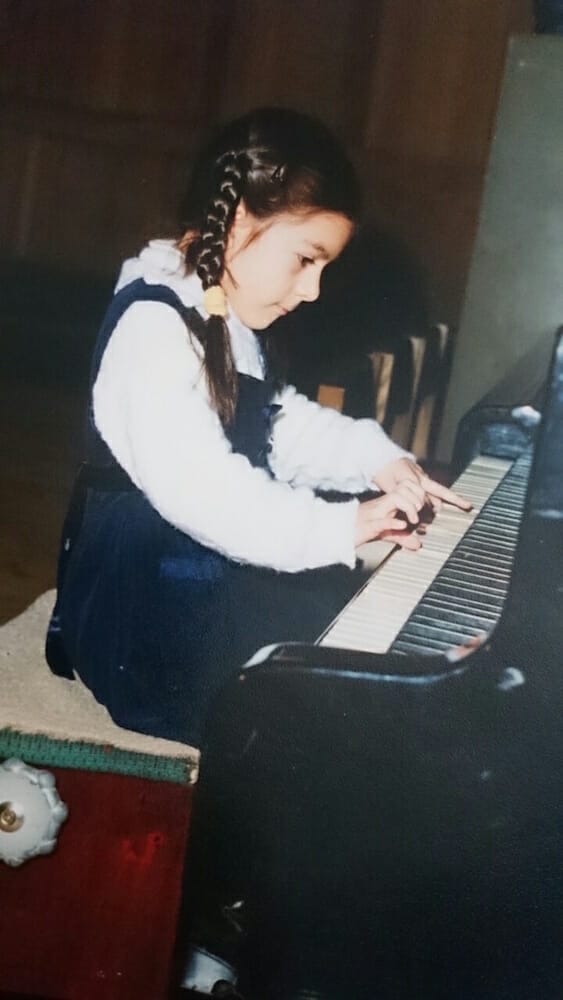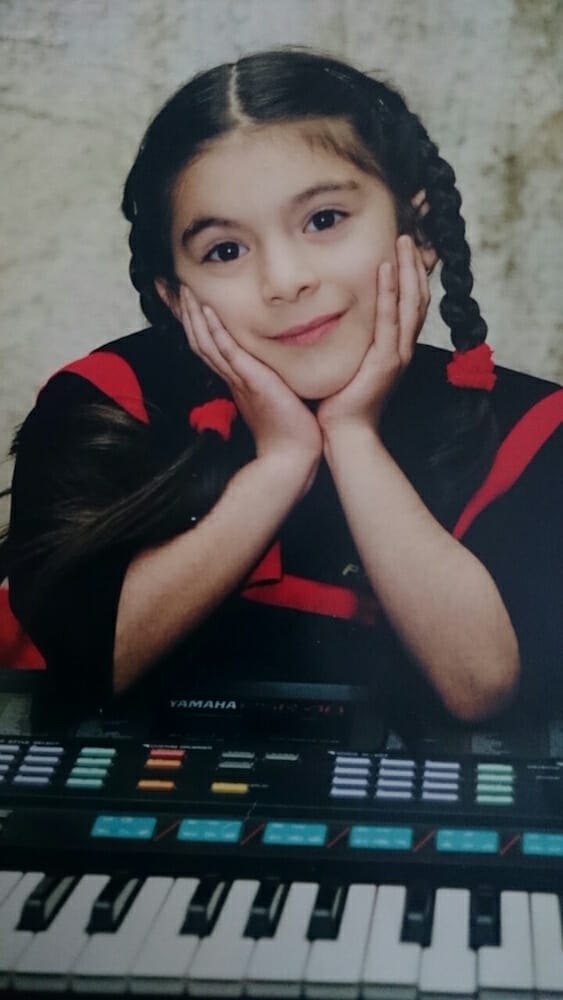On September 28 Georgian-born pianist Mariam Batsashvili, 2014 winner of the prestigious International Franz Liszt Piano Competition, performed in the weekly Dame Myra Hess concert series held in Chicago’s stunningly beautiful former library and now Cultural Center. As with all Wednesday 12:15 PM Dame Myra Hess performances, this was also simulcast on WFMT, which also provides many podcast recordings of these performances on their website.
Click here to read about other Dame Myra Hess Memorial Concert performers.
Mariam Batsashvili - Touched by Genius
In the front row by the center aisle sat two Dame Myra Hess concert stalwarts-- William Lawrence and Gregory Boshart. Two weeks later, the director of the International Music Foundation, Ann Murray, announced that these two gentlemen had become angel donors—giving a $10,000 matching grant to the organization.
This day, in the midst of the performance ,Mr. Boshart became wide-eyed, shook his head, and looked around as if to ask if anyone else sensed that he or she was similarly experiencing something astonishing.
The miracle—the genius in our midst—was pianist Mariam Batsashvili, performing works of Bach, Handel and Liszt.
Mariam Batsashvili Seeks the Divine in the Music
As she performed, it was difficult not to imagine that she was channeling a divine voice and hand. Occasionally her leg would kick out from her small frame. She would move back and forth on the bench, sometimes tilting her head as if listening to a whisper from the composer. Her expression anticipated and telegraphed every turn in the music. When she played high notes she seemed almost in a coquettish flirtation with the keyboard. And then, at the conclusion of a flourish, she would push back from the piano, perhaps with exultation, or perhaps with great suffering.
Natsvilshili- Piano Teacher and Spiritual Guide
Unleashing the spiritual content of each composition is exactly what Mariam, or Mari for short, wants to do. It is the essence of her training from Natalia Natsvlishvili, Mari’s piano teacher and spiritual guide since she was six years old, and whom she still takes piano lessons from today via Skype.
Mari explains, “When I was six I started taking lessons from her and also started music school. I value her opinions greatly – she is my friend and dear, dear teacher. We talk now via Skype and I play for her. She listens. She gives me her opinions. These piano lessons are most important to me…
“She has not only worked to develop me musically but also spiritually. Through music she sees the whole universe. She believes in a higher power that rules everything, and that music is one of the ties between the highest divine knowledge and the people on this earth.
“She teaches to see through the music. It’s not only to see the music with feelings- it’s more than just learning finger movements. That’s not her thing. She gives me pieces to learn that are both about finger moving and emotions. What counts most for her is to think about the moral of a piece and why it was written. It is true that only the composer knows this completely, but we can fill in the blanks and connect the dots.
"We talk about more than music- also literature, painting and other ways in which I can develop as a person—both to be kinder, but also see both good and bad things of life in the music. She has been my teacher for 17 years in total, and all my conscious life. I am very glad for this.”
Piano While Still a Toddler
If you think six years old is a precocious start for a pianist, dial back your image to a 10-month old. At that time young Mariam was listening to her cousins practice the piano, and she wanted to do exactly as they did. She tried. Her grandmother, Lamara, a music teacher herself, took note and wanted Mariam to play. This grandmotherly role was no doubt highly rewarded on her 80th birthday when she could watch, via Internet, her granddaughter Mariam win the Liszt competition.
She met her music teacher of 17 years and started music school at the same time—the rest is the prelude to the September 28 performance
in Chicago that made so many heads bobble in amazement.
Mari Talks about Transcriptions
Speaking of the program she selected for the Dame Myra Hess audience, Mari says, “I like very much to play transcriptions—such as these first two, “Chaconne from Violin Partita No. 2” by Bach and arranged by Busoni, followed by Handel’s “Sarabande und Chaconne über Themen aus dem Singspiel Almira” arranged by Liszt.
“I like the way Busoni transcribed Bach’s piece for violin and made it into something so big, with so many variations. Busoni tried not to lose the style of Bach.
It makes the piece for human life- showing the whole development of human beings in it.
It is highly spiritual. Baroni takes the baroque style and keeps it without adding too much romantic style. But the way in which he has added something from the last century just amazes me—it is both baroque and today, helping to bring the baroque closer to us.
“That’s why I like transcribed pieces, because I can get two periods at the same time. Because I love baroque music it helps me in performing this piece that is so great, so divine and so direct. I love performing it. Busoni added extra effects on top of it. You can sometimes hear the piano sounding like an organ. That makes it very special to me.
Romance of Living in Wiemer, Germany
From her words you too might be sensing that this is a young woman who above all thinks very deeply. Since she won the Liszt competition she’s been on a whirlwind global tour much of the time. Her nest amidst these travels is now in Wiemer, Germany, of which she says, “Wiemer is a special city and it is so touching for me to live there. My favorite composer Franz Liszt spent many years there, as did Shiller and Goethe. Wagner was there. Bach was there with his children. Sometimes when I walk around in the evening it is so mysterious and you feel like if you walk across the street you will be meeting Liszt. Now that I am traveling so much and seeing so many cities and cultures, when I go back to Weimer I feel as if I am back in my fairy tale.”
Billiard and Books
The Liszt competition win had another unexpected change in her life. She was traveling with the staff when someone got the notion to check out a billiards hall. Mari relays that none of them knew how to play, even she, whose aunt owns a billiards hall back in Georgia. But, this happy group did figure out how to hit the ball eventually, and now it has become a fun staple during their tours together.
Mari is also on a mission to complete all the great classics of literature. She reads in English, German, Russian and works translated into Georgian. Just before her trip to Chicago, she was l wrapping up Kafka’s “The Trial”. When time permits, she likes to write as well—always about music.
Click here to find profiles of other Dame Myra Hess Memorial Concert musicians.
Photos:
As a child in Georgia, courtesy of Mariam Batsashvili
In Chicago Cultural Center: Amy Munice
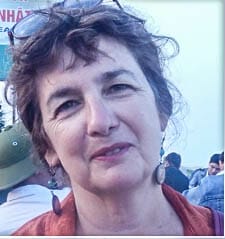
About the Author: Amy Munice
Amy Munice is Editor-in-Chief and Co-Publisher of Picture This Post. She covers books, dance, film, theater, music, museums and travel. Prior to founding Picture This Post, Amy was a freelance writer and global PR specialist for decades—writing and ghostwriting thousands of articles and promotional communications on a wide range of technical and not-so-technical topics.
Amy hopes the magazine’s click-a-picture-to-read-a-vivid-account format will nourish those ever hunting for under-discovered cultural treasures. She especially loves writing articles about travel finds, showcasing works by cultural warriors of a progressive bent, and shining a light on bold, creative strokes by fledgling artists in all genres.

